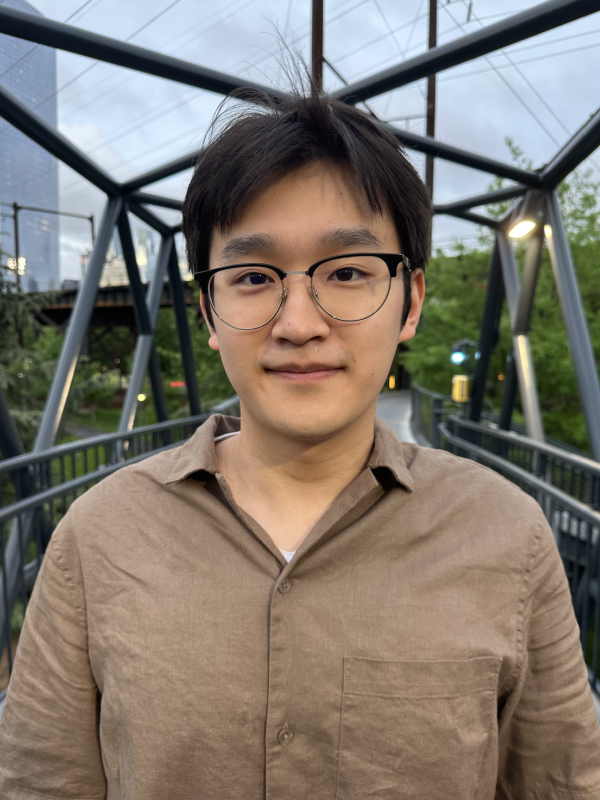Innovations in clinical and restorative dentistry
I graduated with DMD Honors degree from University of Pennsylvania School of Dental Medicine in 2015 and also hold Masters degree in Health Services Administration. I am passionate about teaching and work as Assistant Professor in the Department of Advanced Education in General Dentistry at Penn Dental Medicine and practice in the Penn Family practice. I like research related to new innovations in clinical and restorative dentistry.
Pain Medicine research / Pain Psychology research / Anesthesiology research
Assessing the impact of psychometric factors on the efficacy of interlaminar epidural steroid injections for lumbar radicular pain
Myrna Ho
My research interests are in the intersection of Design and Biology. I am fascinated by how we can use design to improve or solve different biological problems. I am also curious about how different patterns in nature help shape the world of design, whether based on function or aesthetics. I have worked under Dr. Laia Mogas-Soldevila at DumoLabs Research since my sophomore year at Penn. This past summer I conducted research on Mycelium and its functionality. We have tested our creative approaches in the realm of Mycelium-Based Composites by using 3D printing. I am currently still working on this project and exploring more of Mycelium’s acoustic protective qualities. Outside of academics, I am involved in a business and cultural club called SEAC, where I help in member engagement and professional development.
- Mayor's Scholar
- Research Assistant to Dr. Laia Mogas-Soldevila at DumoLabs Research
- College mentor for SEA 2 Uni that helps high school students through the college application process
- PMG Group Lead

Ian Peng
I’m a sophomore from California, majoring in Bioengineering and minoring in Chemistry with a pre-med focus. My research interests center around diagnostic and therapeutic biomedical devices. I completed a research internship at the Terasaki Institute for Biomedical Innovation with the support of UScholars working on microfluidics and organs-on-a-chip, and now I’m an undergraduate researcher in the Jiang Group, where I work on bioelectronics and biosensors for precision health. On campus, I’m an active member of the Biomedical Engineering Society (BMES) and the Penn Undergraduate Biotech Society (PUBS). In my free time, I love hitting the gym, exploring new foods, and spending time with friends and family.
- Undergraduate Research Assistant at Jiang Group
- Research Intern at the Terasaki Institute for Biomedical Innovation
- Regeneron STS Scholar

Quantitative EEG to improve epilepsy care
Our goal is to apply quantitative techniques to electrophysiology data in order to improve our understanding and treatment of epilepsy.
Firearm Safety and Youth Suicide Prevention
Research at the intersection of suicide prevention, implementation science, and health equity
Naseebullah Andar
As a biochemistry and mathematical economics major, my research interests center on genetics and its transformative potential for global development. At the Smilow Research Center under Dr. Kiran Musunuru, a leading physician-scientist, I focused on genetic engineering tools for therapeutic solutions to hypoglycemia, optimized CRISPR gesicle delivery methods, and investigated genetic approaches to treat Marfan syndrome. These projects deepened my interest in CRISPR technology and its practical applications, motivating my transition to my current lab to focus more on developing these technologies.
Currently, I am a Research Assistant in Dr. Rahul Kohli’s lab at the University of Pennsylvania, enhancing CRISPR-Cas9 genome editing efficiency through innovative DNA delivery methods. We explore strategies to improve the delivery of double-stranded and single-stranded DNA, addressing challenges like cellular toxicity and inefficient DNA delivery in primary cells. This involves engineering proteins for more effective and targeted genetic material delivery into cells.
My interest in developmental economics complements my biochemistry research, as both disciplines aim to create sustainable solutions for global challenges. I am passionate about applying economic principles to foster sustainable development and improve living standards globally. My studies allow me to analyze the economic and social impacts of scientific innovations, particularly biotechnological advancements, on global economic development.
As a Perry World House Fellow, I engage in discussions on international relations and policy, bridging the gap between scientific innovation and global development. Outside academics, I serve as the elected vice chair of the International Students Advisory Board, representing over 5,000 students. Additionally, I am a sprinter in the 100-meter dash, have a keen eye for classic continental literature, and have a deep interest in learning new languages.
- University Scholar
- Research Assistant to Dr. Kiran Musunuru, Smilow Research Center
- Research Assistant to Dr. Rahul Kohli, University of Pennsylvania

Forrest Lin
As a third-year bioengineering major, I’m enthusiastic about studying the intersections between my major and neurology through translational research. A majority of my work concerns the application of neuromodulation (modifying neural activity by delivering electric/magnetic impulses) and how these techniques can be used to clinically alleviate cognitive impairments in various mechanisms of disease/injury (stroke, dementia, small vessel disease, etc). With UScholars' support in Summer 2025, I've continued my research with Dr. Kelly Sloane at the Laboratory for Cognition and Neural Stimulation (LCNS) while exploring new areas of interest. These projects range from benchmarking large language models (LLMs) as alternative methods to automate time and labor-intensive processes in the transcription of impaired speech to surveying healthcare providers and patients to evaluate the quality of care in post-stroke patients. Outside of research, I enjoy perusing through second-hand bookstores and learning trendy choreographies that I find on YouTube with friends.
- Peer Mentor Group Lead
- SEAS Orientation Peer Advisor

Predicting and understanding pulmonary function during sleep
Identifying patient features that predict the presence of specific sleep-related breathing disorders or responses to treatment
Examining the mechanisms of migraine and photophobia
Dr. Kaiser's lab examines how light can be perceived as unpleasant and/or painful. He utilizes a mouse model to understand how retinal signals are processed and modulated by the nervous system, leading to photophobia in migraines and other conditions.
- Previous page
- Page 5
- Next page